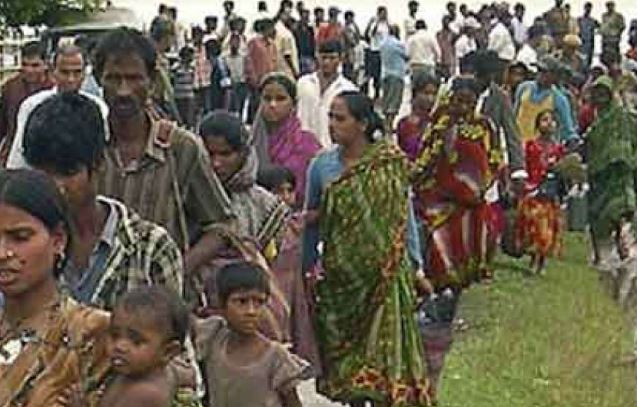Rohingya Influx: A Growing Security Concern
The Ministry of External Affairs (MEA) has sounded the alarm on the escalating Rohingya crisis, labeling the influx of Rohingya refugees as a substantial security threat to India. During the inaugural Videsh Sampark event in Tripura, a collaborative effort with the state government, MEA officials underscored the urgency of addressing this complex issue. The event served as a platform for state and central officials to deliberate on a spectrum of topics, including passport services, trade and investment opportunities, and the intricacies of emigration.
MEA’s Resolute Approach: Repatriation a Priority
Ankan Banerjee, a joint secretary within the MEA, explicitly articulated the government’s unwavering stance on the Rohingya issue, emphasizing their repatriation as a top priority. Banerjee characterized the Rohingya presence in various regions, including Haryana, Jammu, Hyderabad, and the Northeast, as a grave security concern. While acknowledging the Rohingya’s plight as stateless and impoverished individuals, he stressed the potential security risks they pose.
Border Security: A Multifaceted Challenge
The MEA official acknowledged the ongoing efforts to curb Rohingya infiltration, recognizing the challenges inherent in securing India’s extensive borders. While security forces and the Border Security Force (BSF) are actively engaged in preventing illegal crossings, the porous nature of the border remains a persistent obstacle. This issue, however, is not unique to India, as similar challenges exist along the Mexico-United States border and other regions marked by income disparities.
Videsh Sampark: A Collaborative Platform for Solutions
P.K. Chakravarty, secretary in the home department, revealed that the state government and the BSF have already initiated discussions on the recent surge in infiltration. The Videsh Sampark event further solidified the collaboration between state and central authorities, fostering a unified approach to address the multifaceted challenges posed by illegal immigration. This platform facilitated the exchange of information on MEA programs and schemes, migration patterns, and economic prospects.
Digital Solutions and Labor Issues in Focus
A notable proposal emerged during the event: the creation of a digital platform to streamline information sharing on prisoners held in foreign countries. Additionally, officials acknowledged the potential of effective coordination between state and central governments in resolving labor issues faced by Indian citizens abroad. The strategic importance of Tripura, a border state sharing a significant 856 km boundary with Bangladesh, was underscored, particularly in light of recent events where a large number of Bangladeshi students sought refuge in Tripura due to unrest in their homeland.
Key Learnings
| Key Point | Description |
|---|---|
| Rohingya influx labeled a security threat by MEA | MEA officials express concerns over the growing Rohingya population and potential security risks. |
| Repatriation of Rohingya prioritized by the Indian government | Government reaffirms its commitment to sending Rohingya refugees back to their place of origin. |
| Challenges in curbing infiltration acknowledged | Porous borders and income disparities contribute to the ongoing influx of Rohingya refugees. |
| Videsh Sampark fosters collaboration between state and central authorities | The event facilitates discussions on various issues, including passport services, trade, and emigration. |
| Digital platform proposed to address prisoner information exchange | Proposal aims to streamline communication and information sharing between state and central governments. |
Summary:
The Rohingya crisis has taken center stage in India, with the MEA declaring it a major security threat. The government’s unwavering stance on repatriation underscores its commitment to addressing this complex issue. While acknowledging the challenges in curbing infiltration, collaborative efforts like Videsh Sampark are paving the way for potential solutions. The event’s focus on digital platforms and labor issues further demonstrates the government’s proactive approach in safeguarding national security and protecting the interests of its citizens abroad.
Soumya Smruti Sahoo is a seasoned journalist with extensive experience in both international and Indian news writing. With a sharp analytical mind and a dedication to uncovering the truth, Soumya has built a reputation for delivering in-depth, well-researched articles that provide readers with a clear understanding of complex global and domestic issues. Her work reflects a deep commitment to journalistic integrity, making her a trusted source for accurate and insightful news coverage.



